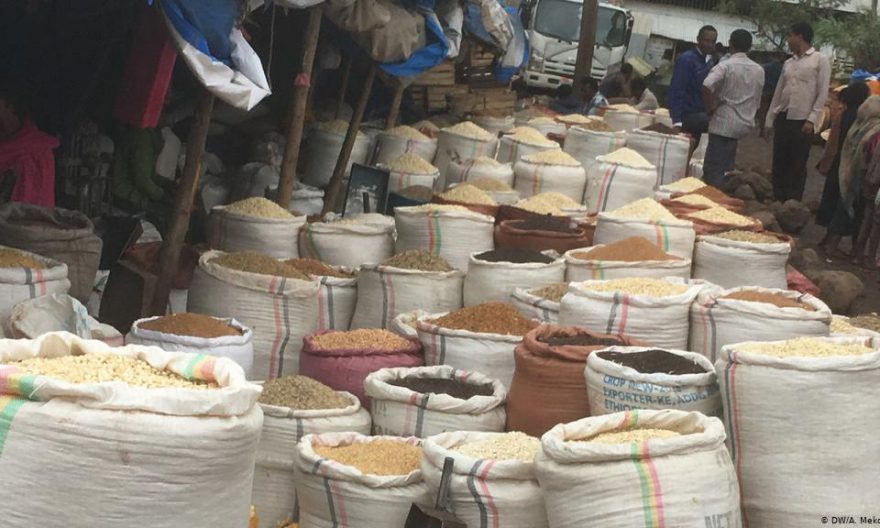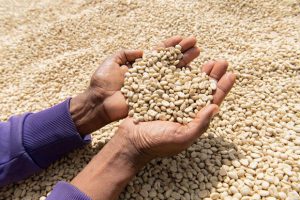
BY MENGESHA AMARE
One has put in social media communication peculiarly in Facebook a message reads, “The prices of all commodities like ‘Teff’ and cereals, that of vegetables, beer, beef and you name it alarmingly rise, but my salary remains stagnant. So, how can I lead life in such a tumultuous way?”
This idea looks trivial and a means of making hilarity for the best, but it knocks everyone’s door as high cost of living preponderantly due to inflation has been compromising, and collapsing to a larger extent, many lives.
Inflation has crossed borders and been highly affecting people residing in both developing and developed nations across the globe. Those who are living in the former like ours have been severely entangled as price hike has got married to the existing deficiency and lack of capacity to resist the ups and downs, which were in turn born to state of underdevelopment and lack of sufficient production.
The most serious cost of tenacious inflation is it destroys the confidence the society has developed to solve a range of problems in life. Undeniably, the poverty reduction efforts in the country witnessed so far are ruthlessly diminished by inflation, indeed.
“Incontrovertibly, the price hike rampant in the city of Addis Ababa, for example, has further undermined food security by reducing supply of food crops on the local market. The very problem is, though we all are in the era of inflation as it is a global phenomenon, producers and consumers are not in a position to exchange following a proper channel, and no room for bargaining as numerous brokers are found along the way, ” Mustefa Huluka, an economics graduate from Semera University said.
As to him, sustainable and long term price stabilization policies have to be put in place in particular with a view to well addressing supply side constraints.
Surprisingly, he stated, if the food inflation index in this country rises once, it has never shown a sign of coming down. The prices of essential food items are highly skyrocketing as compared to that of the commodities of the previous years. Though the pinch is felt by every household, the poorest segments of the society are understandably the worst affected.
Sadly, the prices of commodities are rising day in and day out, if one buys a certain commodity today, they will buy the same thing with a dramatic increase after two or three hours let alone waiting for days and weeks. Where is the limit then?
It is well known that the majority of the population dwelling in urban areas such as Addis Ababa have led life running menial works, and could hardly resist the impacts of high cost of living.
“If officials put themselves under these meagerly paid individuals’ shoes, they might feel the pain and at least take prompt measures to rescue life though the problem is the prime life obstacle in our country,” Mustefa said.
The prices paid by the households for essential food items have increased across the spectrum and this increase in prices has naturally resulted in a change in consumption habits. For instance, the mushrooming food budget has invariably led households to cut costs in other aspects such as clothing, healthcare, transportation and refreshment.
“To the surprise of everyone, consumption of individual food items has also shown a significant reduction following the diametrically different level of income of individuals and the rate of inflation. A number of households have also been forced to adopt other coping strategies such as using up savings, pawning belongings, taking a loan from the relatively better counterparts to finance their necessities etc.,” Mustefa said.
He further said: “Though not enough what the government has done so far is very promising. Imagine how severe the problem could have been and many would have been suffering from unbearable hurdles if Addis Ababa city administration hadn’t implemented a large-scale housing program aimed at reducingthe housing supply shortage and improving the living standard of the urban low and middle-income households through the construction of condominium houses.”
Although housing is an integral part of a human settlement that fulfills a basic need and has a profound impact on the quality of life, health, welfare as well as productivity of human beings, a large proportion of urban residents in our country do not have access to decent housing at an affordable cost. As a result of this, inadequate housing condition has become an intractable challenge that has continued to receive attention from the government, investors, developers and other concerned bodies.
Addis Ababa is a city with various aspects of urban problems, which include high cost of living emanating from inflation though a temporal scene, housing shortage and highly skewed income disparity, high rate of unemployment, among others.
If the former can be easily addressed via containing its root cause—inflation—all others are going to be easy to be dealt with.
As to Mustefa, household size positively relates to the incidence of poverty and negatively impact on per capital expenditure. So, the level of poverty increases with an increasing household size.
“I would love to suggest my assumptions I have thought lucrative to come up with potential remedies for the high cost of living emanating from the ever-rising inflation. In the first place, policies that can potentially help the nation stabilize the market have to be promulgated and put into actions. There are efforts at present towards this end though not sufficient.
“Second, all means have to be exploited to increase production and productivity at local level by which the farming community can be active practitioners and direct suppliers of products with a minimum cost.
“Third, a well streamlined and transparent commodity exchange system should be practically applied. If the producing segments of the society are provided with opportunities to present their produces in a well-organized manner and can get the benefit out of their production over the advantage of the illegitimate brokers’ unlawful enrichment, the rate of high cost of living can be prettily reduced,” Mustefa suggested.
He further stated that it is also particularly important to enhance the use of improved seeds, commercial fertilizers and other inputs by farmers to boost production cross the nation.
To the surprise of everyone, the farming community in different parts of the country delivers products at a lower price, but when it reaches urban areas especially Addis Ababa, it becomes highly inflated merely benefiting individuals who would like to amass undeserved profits at the expense of mass. This trend has to be quit through devising a well-organized marketing order.
Fourth, Ministries of Agriculture, Trade and Industry and other concerned ones have to move in unison to make a lasting solution to the problems created in relation to inflation to help citizens withstand the impacts of high cost of living though the problem has become universal, Mustefa said.
Here, the effort started to be exerted to boost homegrown economy has to be well consolidated and expanded across the nation thereby coming up with remarkable production to successfully the impact of inflation, he added.
Netsanet Gudeta is a consumer met this writer at Shoa Supermarket and shared her idea saying, “If truth be told, we have been experiencing high food prices, especially since 2016, and the situation has kept at the same rate, even followed the pattern in at the worst.”
She further said that since inflation is highly baffling urban dwellers, it has to receive necessary attention and concerted effort especially to help low and middle-income households and provide them with affordable and cheap rental houses, diversify employment opportunity to solve welfare problems, intensify family planning services so as to improve family planning knowledge, which in turn play an important role in reducing the impact of poverty
The Ethiopian Herald 21 April 2021





